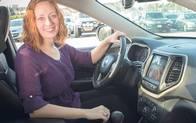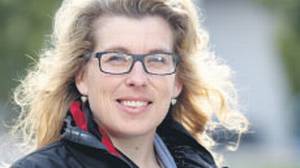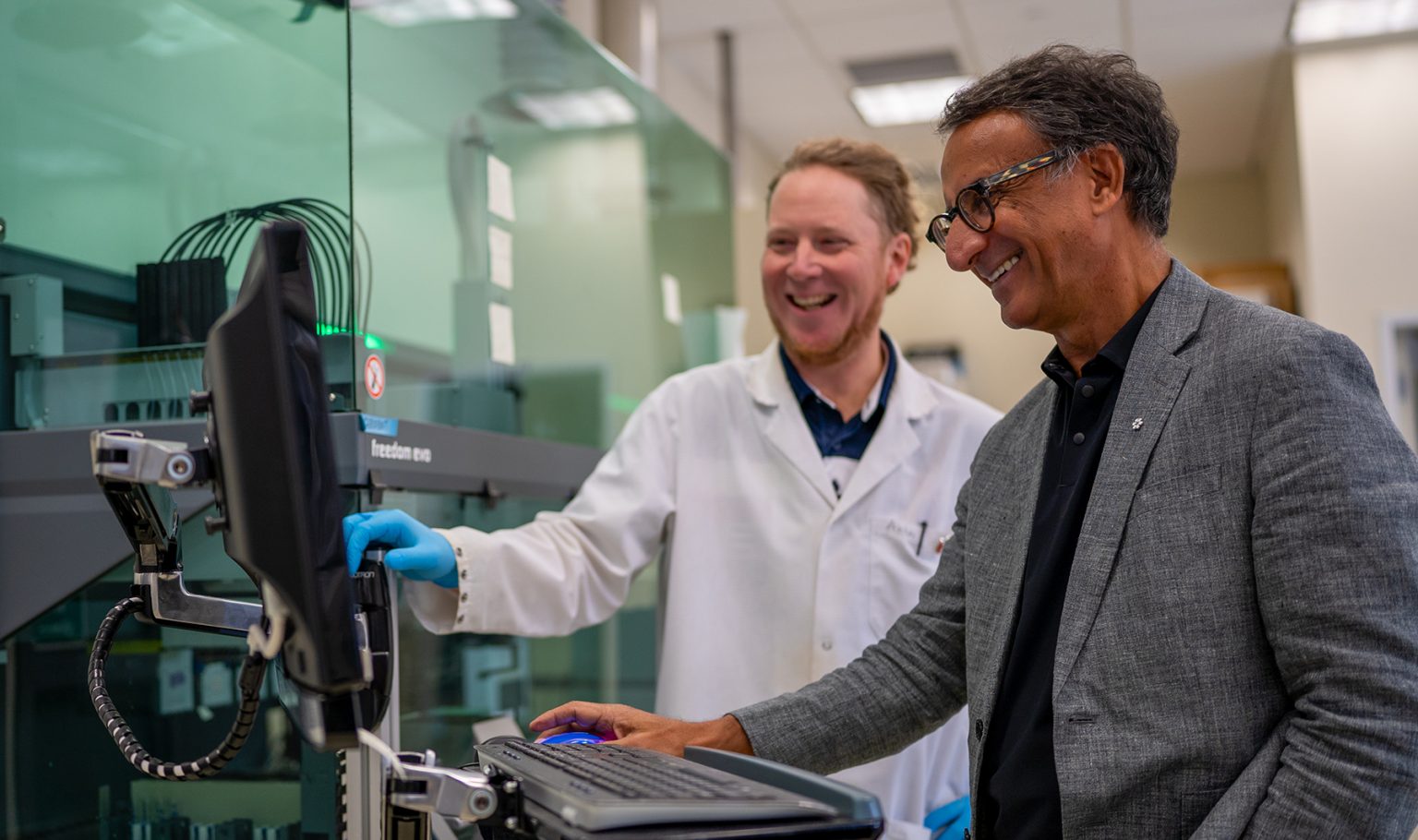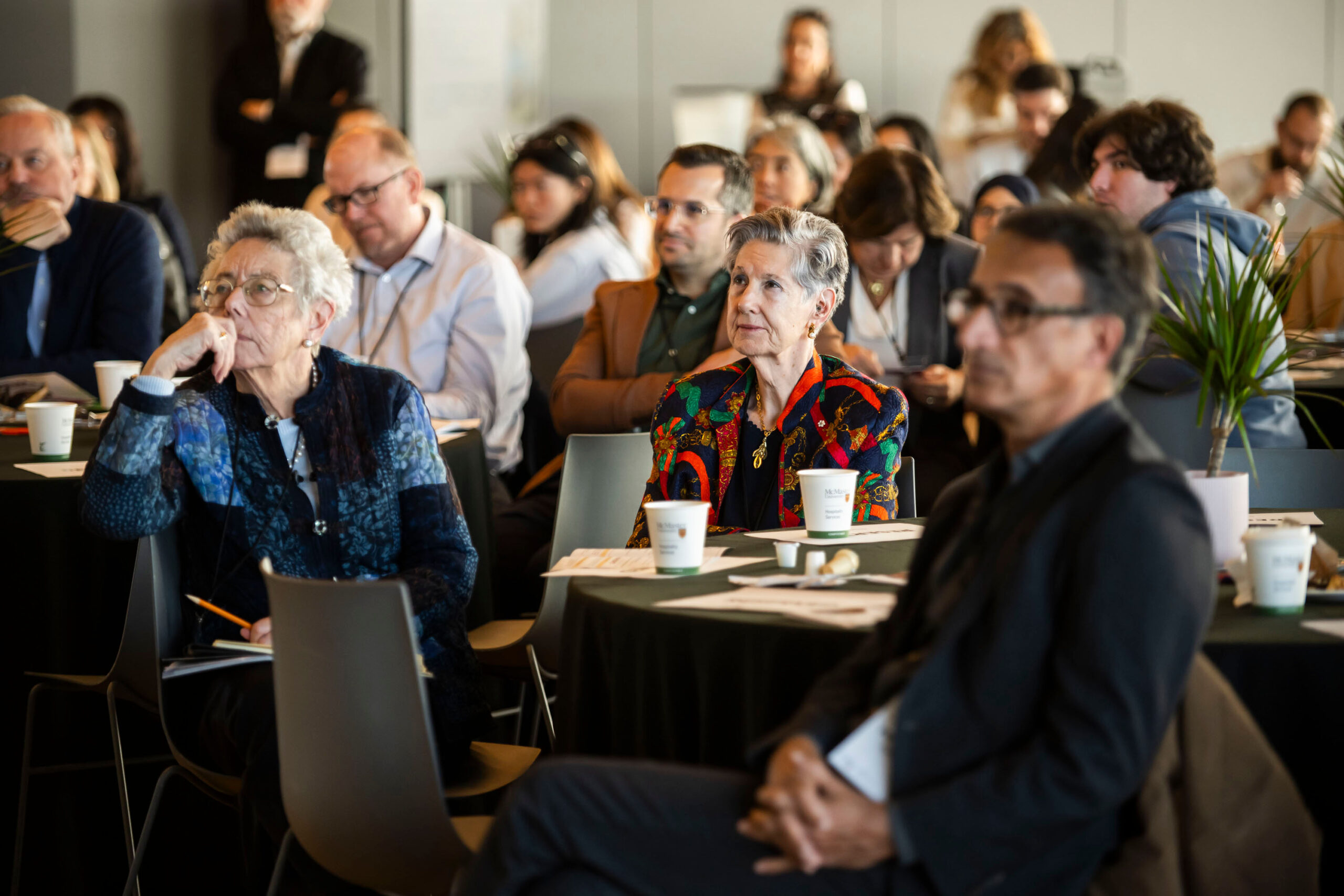Members of MIRA ​were featured in a Globe and Mail supplement focused on healthy aging. Distributed in print and online on November 21, 2016, the supplement features stories about outcomes arising from McMaster’s strength in aging research.
Published: November 16, 2016

Giving up driving is a sensitive issue as people age, leading to a loss of mobility that is inconvenient for seniors and can result in social isolation and depression.
Determining whether seniors can safely remain behind the wheel is critical; researchers at McMaster University are part of an extensive study evaluating their health, driving patterns and safety on the road.
“We need to enable people to drive safely for as long as possible,” says Brenda Vrkljan, associate professor of occupational therapy in the School of Rehabilitation Science at McMaster University. When working as an occupational therapist at a hospital in a rural area, she noticed that returning to driving was “a really big issue” for older people following illness or injury, yet found “major gaps” in the research showing whether they could return to driving.
Today Dr. Vrkljan is a lead investigator with the Canadian Driving Research Initiative for Vehicular Safety in the Elderly, or Candrive, a project involving academics, government and health-care professionals. It tracks a group of more than 1,000 older drivers, with a goal of developing a screening tool that will take into account factors such as drivers’ attention and executive function skills, as well as input from their family members.

“We need to enable people to drive safely for as long as possible.”
Brenda Vrkljan is associate professor in the School of Rehabilitation Science at McMaster University
“Driving is still the most convenient way of getting to places that are important to us,” she says, noting that unsafe driving can lead to public safety concerns and harm elderly motorists involved in collisions.
Ian Jack, spokesperson for the Canadian Automobile Association, which is a partner in Dr. Vrkljan’s driving projects, says that with seniors becoming a growing part of the population, “we need to understand the particular challenges they face and try to mitigate them.”
Advanced vehicle technologies such as back-up cameras can help and even lengthen the driving life of Canadians, “but the fundamental question is fitness to drive,” he says. “Ultimately the human behind the wheel is the most important safety device in the vehicle.”
Jessica Gish, a social gerontologist who is a professor in McMaster University’s Department of Health, Aging and Society, says “the car has been transformed” with gadgets such as blind-spot monitors. She is the principal investigator on a study that has so far shown that seniors are embracing the new technologies, which they perceive to be improving their driving, but they don’t want to rely on such gadgets entirely.
“There’s an assumption that older drivers are a hazard on the road, but they have years of low-tech driving skills and habits,” she says, noting that seniors are less comfortable about the car being in control. “We can learn from them about how to drive.”
Dr. Vrkljan says older drivers often have the means to own high-end cars with extra bells and whistles like safety devices. It’s been eye-opening for McMaster University students working with seniors on the research, and dispelling stigmas and stereotypes associated with older people on the road. “It’s not about age, it’s about function.”
She notes that older people increasingly have “viable alternatives” to driving to remain mobile, including Uber-style ride-share services. “You want the right option for the right person,” Dr. Vrkljan adds.
This article originally appeared in a Globe and Mail sponsor content feature on Healthy Aging produced by Randall Anthony Communications Inc. Reprinted with permission. All rights reserved. The feature can be viewed here or downloaded here.

